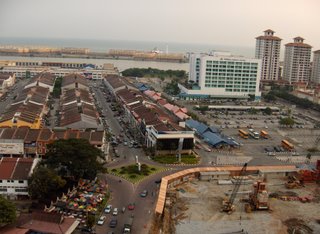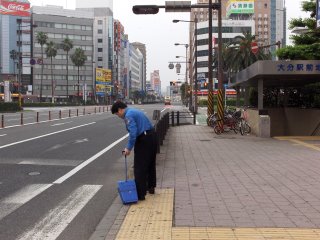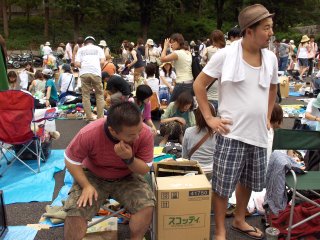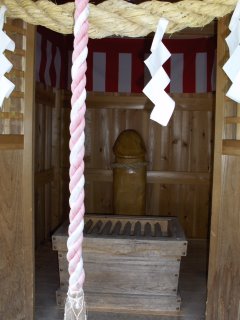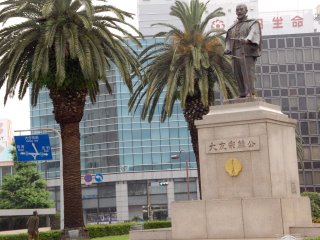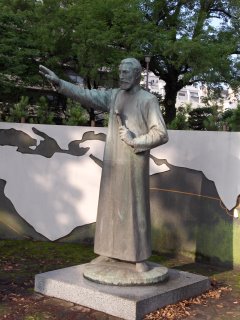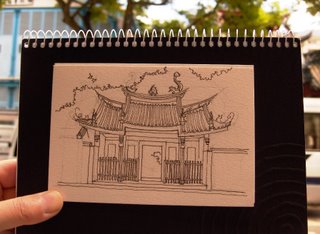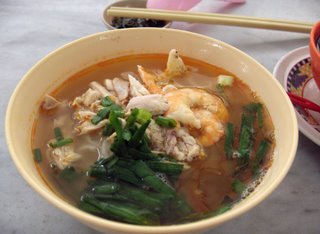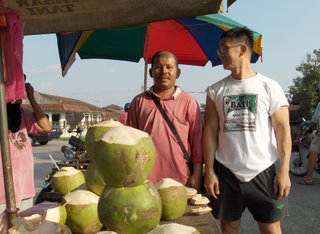 What has the Khong Guan Biscuit got to do with Ipoh?
What has the Khong Guan Biscuit got to do with Ipoh?I was reading the book ‘Stepping Out – the making of a Chinese Entrepreneur’, and interestingly & incidentally it mentioned that the founder of Khong Guan Biscuit, Chew Choo Keng (周子敬)ventured into his first start-up business in biscuit making in Ipoh!
It reads:
'His first business start-up was in Ipoh together with a former fellow school-mate Chan Beng Tee, with a capital borrowed from Boon Tee’s uncle & his friend. Boon Tee came to work in his uncle’s rubber packing firm in Ipoh. His uncle Chew Boon San was the President of the Hokkien Association in Ipoh and a well-known business man.
They formed the Khong Leng Biscuit Factory at No 5 Cowan Street, Ipoh, with a staff of about 40 people who were all unmarried people. He was 24 then in 1940. He was the manager, his younger brother the director, and his wife was the assistant chemist. The workers were all school mates in China and their own people. '
 On a trip back to Ipoh last month, I went looking for where No 5 Cowan Street is. It was not difficult to find where Cowan Street is, as it is one of the main roads in the Ipoh New Town. However to my pleasant surprise, the address is located in a row of shop houses which all along for the residents of Ipoh has been well known for its concentration of bakery shops. This bakery row is located in the same block as the old Grand Cinema & Amusement Park. The shop house is now the Goodways Enterprise Sdn Bhd selling Yamaha motorcycles. (The Sdn Bhd stands for Senderian Berhad – meaning Private Limited in Malay).
On a trip back to Ipoh last month, I went looking for where No 5 Cowan Street is. It was not difficult to find where Cowan Street is, as it is one of the main roads in the Ipoh New Town. However to my pleasant surprise, the address is located in a row of shop houses which all along for the residents of Ipoh has been well known for its concentration of bakery shops. This bakery row is located in the same block as the old Grand Cinema & Amusement Park. The shop house is now the Goodways Enterprise Sdn Bhd selling Yamaha motorcycles. (The Sdn Bhd stands for Senderian Berhad – meaning Private Limited in Malay).In this row of 6 to 7 shop houses, there used to be at least three bakery shops, run by Indian or Pakistani Muslims. There is now only one left doing business – Noor Jahan Bakery Sdn Bhd, located at 7 Cowan Street. The shop lots next door were closed and the front barricaded with zinc sheet. It is probably the victims of the repeal of quit rent act, which was lifted a few years back.
I went into the Noor Jahan Bakery, and chatted with the boss who is in his late sixties or early seventies, about the history of the bakery shops in this area. He told me that his dad came from Pakistan after the War. He was working in a bakery shop owned by a Chinese, and he later took over the business. He said that bakery shops were concentrated in this northern part of the new town, because during the colonial days this area was nearer to where the Orang Putih, the White Man lived. He said that the oldest bakery was a century old, in the shop next to his, which is closed now.
I inquired how did the name Cowan came about. He said that it was from the Malay word kawan, meaning friend. My guess is that the in the olden days the fellow bakers from among the ethnic Indian Muslim and the Chinese could be addressing each other as kawan, and the word came to be corrupted as Cowan. Or the colonial masters could have addressed their bakers as kawan, and they got their daily bread from kawan place.
 Just like the tale that Smith Street in Singapore Chinatown came from the corruption of the word Hokkien word si-mi-su ( 什么事), which means ‘ What is it?’ Cowan could be have originated from kawan.
Just like the tale that Smith Street in Singapore Chinatown came from the corruption of the word Hokkien word si-mi-su ( 什么事), which means ‘ What is it?’ Cowan could be have originated from kawan.This aerial view photograph of Ipoh with Cowan Street in the middle was taken in 1962, when Ipoh became a municipality. The circular building known as the Yau Tet Shin Market or Bat Gog Lau (八角楼) in Cantonese is now gone. Itwas demolished not too long ago and what is left is a vacant lot. now. The complex to the mid-left is the Grand Cinema & Amusement Park. It was akin to the Great World City or Gay World of old in Singapore.
After the War Chew Choo Keng returned to Singapore, and with the capital he got from selling off his business in the peninsula, he started the Khong Guan Biscuit at Paya Lebar. As they say, the rest was history.
Post-script:
1. The Khong Guan story continues:
'During the Japanese occupation, cos Chew Choo Keng was unable to get flour for his business due to shortage, and refusing to use flour substitute, he dissolved the business.
He then went to Telok Anson to live with his father-in-law, and stared a soap making business. Business was good and he sold 400-500cases of soap per day. He soon became rich and with the money he made he started other businesses investing in coconut oil factory, rice trading company and salt company employing a few hundred workers.
The success of there trading activities boosted his confidence as a businessman and set the momentum for his gradual business expansion
During the war years in Telok Anson, the communist regarded him a traitor as he could drive his cars which served his company freely with permit from the Japanese military. He was arrested and interrogated by the communist in the jungle. It turned out later that the interrogator was a former female classmate of his in China. Chew met up with Chin Peng who instead of the charges, solicited his contribution to the communist cause, which involve usable products such as soap, salt, and oil as well as $10,000 cash. Upon his release, Chew was interrogated by the Japanese Military Police in Taping jail, on the events that took plaec in the jungle.
Chew in fact saw the war as a turning point, an opportunity to change his business venue from Malaya to Singapore. In the communist camp, Chin Peng warned him that Malaya would fight for its independence from the British, a revelation which started him thinking of going elsewhere for his business development.
Start-up in Singapore
Two months after the war, he returned to Singapore. He has sold all his businesses in Malaya for about $70-80,000. He was unemployed in Singapore and had spent about $10-20,000. He then ventured to start up the Khong Guan Biscuit Factory in Paya Lebar with the remainder of $50-60,000 as capita.'
2. In Singapore History Gallery of the newly opened National Museum of Singapore, Khong Guan Biscuits and the Chew brothers Choo Keng and Choo Han are featured in the Personal Path in the Merdeka zone on self-governing.
Reference:
1. Stepping Out –The making of Chinese Entrepreneurs, by Chan Kwok Bun, Claire Chiang, Prentice Hall 1994
 2. Ipoh, The Town that Tin Built, A review of the history, progress and developmenet of Perak’s capital –commemorative book on the establishment of Ipoh as a municipality in on May 31, 1962. This book is availabe at the Middle Road National Library, Singapore.
2. Ipoh, The Town that Tin Built, A review of the history, progress and developmenet of Perak’s capital –commemorative book on the establishment of Ipoh as a municipality in on May 31, 1962. This book is availabe at the Middle Road National Library, Singapore.-//-



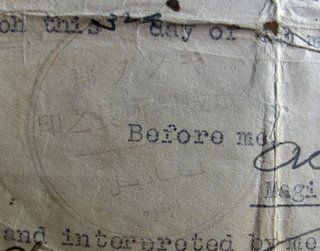



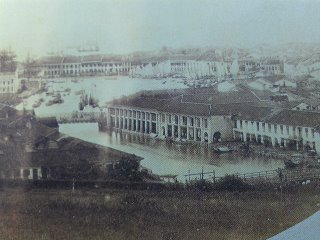 The photograph in the middle was taken by Sachtler & Co in 1863, and twenty years on with the wet collodion positive and collodion negative process photography improved by leaps and bound. The two bridges which were the predecessors of the Elgin Bridge and Coleman Bridge are clearly visible in the picture. In 1862, an iron bridge was imported from Calcutta to replace the wooden footbridge called the Thompson Bridge, and was renamed Elgin Bridge, after the Lord of the same name who was Governor-General of India, 1862-1863. Coleman Bridge spanning New Bridge Road is seen in the right lower corner of the photograph. The two rows of building in the middle is where the Riverwalk Apartment is now. These two storey shop houses have very prominent covered five footways in the shop front, and five foot ways was a building requirement laid out in the Jackson Town Plan.
The photograph in the middle was taken by Sachtler & Co in 1863, and twenty years on with the wet collodion positive and collodion negative process photography improved by leaps and bound. The two bridges which were the predecessors of the Elgin Bridge and Coleman Bridge are clearly visible in the picture. In 1862, an iron bridge was imported from Calcutta to replace the wooden footbridge called the Thompson Bridge, and was renamed Elgin Bridge, after the Lord of the same name who was Governor-General of India, 1862-1863. Coleman Bridge spanning New Bridge Road is seen in the right lower corner of the photograph. The two rows of building in the middle is where the Riverwalk Apartment is now. These two storey shop houses have very prominent covered five footways in the shop front, and five foot ways was a building requirement laid out in the Jackson Town Plan.

















